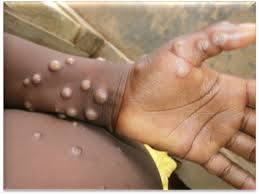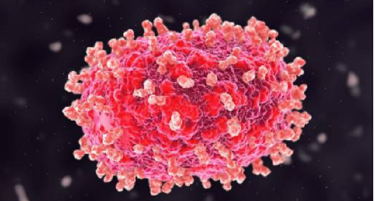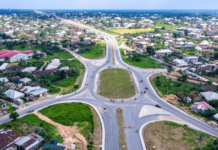Nigeria, along with several other countries currently grappling with the recent Monkeypox (Mpox) outbreak, is set to benefit from a $135 million funding initiative launched by the World Health Organization (WHO). This financial plan is a key component of WHO’s broader strategy to combat the spread of Mpox, a disease that has raised significant public health concerns due to its rapid transmission and potential for severe outcomes.
In a statement released on Monday, WHO outlined its commitment to stopping the human-to-human transmission of Mpox through a coordinated effort at global, regional, and national levels. This plan, referred to as the Global Strategic Preparedness and Response Plan (SPRP), was developed following the declaration of Mpox as a public health emergency of international concern by WHO Director-General Dr. Tedros Adhanom Ghebreyesus on August 14. This declaration underscores the seriousness of the situation and the urgent need for a robust, unified response.
The strategic plan, which covers a six-month period from September 2024 to February 2025, calls for a comprehensive and multifaceted approach. Although subject to input from WHO member states, which were briefed on the plan on August 23, the initiative outlines a funding requirement of $135 million. This funding will support a range of activities and partners, including WHO member states, the Africa Centres for Disease Control and Prevention (Africa CDC), local communities, and researchers. Nigeria, as a member of Africa CDC, will be a critical participant in these efforts, given the current state of Mpox infections in the country.
 Key elements of the plan include implementing comprehensive surveillance to detect and track cases, enhancing prevention measures, and ensuring readiness to respond effectively to new outbreaks. The plan also emphasizes the importance of advancing research to develop and distribute medical countermeasures, such as diagnostic tests and vaccines, equitably. One of the main goals is to minimize animal-to-human transmission, a known pathway for the spread of Mpox, and to empower communities to actively participate in preventing and controlling outbreaks.
Key elements of the plan include implementing comprehensive surveillance to detect and track cases, enhancing prevention measures, and ensuring readiness to respond effectively to new outbreaks. The plan also emphasizes the importance of advancing research to develop and distribute medical countermeasures, such as diagnostic tests and vaccines, equitably. One of the main goals is to minimize animal-to-human transmission, a known pathway for the spread of Mpox, and to empower communities to actively participate in preventing and controlling outbreaks.
Strategic vaccination efforts will target individuals who are at the highest risk of contracting the virus, including healthcare workers and close contacts of confirmed cases. By focusing on these high-risk groups, WHO aims to interrupt transmission chains and reduce the spread of the virus. At the global level, WHO will emphasize strategic leadership, providing timely, evidence-based guidance, and ensuring access to medical countermeasures for the most vulnerable populations in affected countries.
WHO’s plan involves working with a wide array of partners and networks at various levels. These include international, regional, national, and local stakeholders who are critical to enhancing coordination across all areas of preparedness, readiness, and response. Among these partners are the ACT-Accelerator Principals group, the Standing Committee on Health Emergency Prevention, Preparedness and Response, the R&D Blueprint for Epidemics, and the interim Medical Counter Measures Network (i-MCM Net). This extensive collaboration aims to create a cohesive and effective response to the Mpox outbreak, leveraging the expertise and resources of each partner to maximize impact.
Dr. Ghebreyesus has emphasized the necessity of this comprehensive and coordinated approach, particularly in regions like the Democratic Republic of the Congo (DRC) and its neighboring countries, where the Mpox outbreak is most severe. “The Mpox outbreaks in the Democratic Republic of the Congo and neighboring countries can be controlled and can be stopped,” said Dr. Ghebreyesus. “Doing so requires a comprehensive and coordinated plan of action between international agencies, national and local partners, civil society, researchers, manufacturers, and our Member States. This SPRP provides that plan, based on the principles of equity, global solidarity, community empowerment, human rights, and coordination across sectors.”
In Nigeria, the response to the Mpox outbreak is intensifying. According to the Nigeria Centre for Disease Control (NCDC), there have been 39 confirmed cases of Mpox across 33 states and the Federal Capital Territory, with no reported deaths. NCDC Director-General Jide Idris, speaking at a press briefing following the WHO’s declaration of a public health emergency, highlighted the agency’s efforts to ramp up surveillance and ensure a swift response to new cases. Idris noted that all port health services across Nigeria’s five international airports, 10 seaports, and 51 land and foot border crossings are on high alert to detect and manage any potential cases of Mpox entering the country.
The NCDC has also put several states on high alert, including Lagos, Enugu, Kano, Rivers, Cross River, Akwa Ibom, Adamawa, Taraba, and the Federal Capital Territory, Abuja. These states are crucial in the national effort to monitor and control the spread of the virus. The high alert status is designed to facilitate rapid response and containment measures, ensuring that any emerging cases are quickly isolated and treated to prevent further spread.
The urgency of these measures is underscored by the recent surge in Mpox cases across Africa. The WHO has expressed significant concern over the rising number of infections in the DRC, where the virus was first discovered in humans in 1970, and its spread to other countries. This year alone, the DRC has reported over 14,000 cases and 524 deaths, already surpassing the total number of cases reported last year. This alarming increase has prompted WHO to call a meeting of experts to assess the outbreak and formulate recommendations for an effective response.
Following these discussions, Dr. Ghebreyesus confirmed the gravity of the situation, stating, “Today, the emergency committee met and advised me that in its view, the situation constitutes a public health emergency of international concern. I have accepted that advice.” He added, “This is something that should concern us all. WHO is committed in the days and weeks ahead to coordinate the global response, working closely with each of the affected countries, and leveraging our on-the-ground presence, to prevent transmission, treat those infected, and save lives.”
As Nigeria and other affected countries implement the WHO’s strategic plan, the focus will be on ensuring that all measures are rooted in principles of equity and human rights. The goal is not only to control the current outbreak but also to build resilient systems that can prevent future ones. By working together and prioritizing the health and safety of all citizens, Nigeria and its partners can overcome the challenges posed by the Mpox outbreak and safeguard public health for the future.




